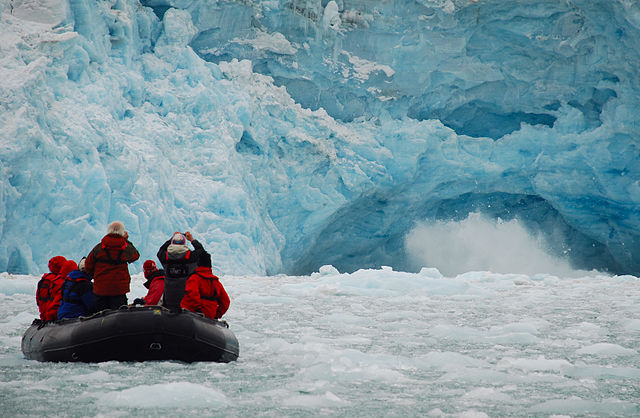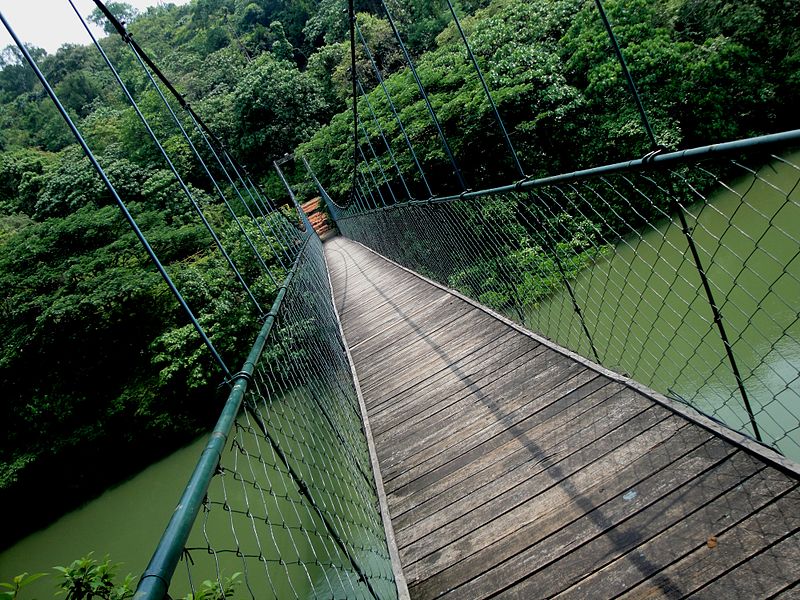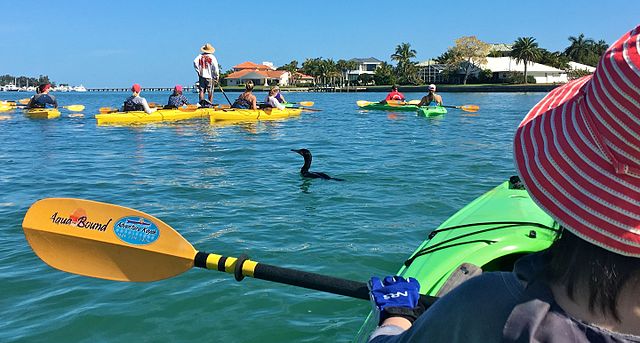English Across the Curriculum
Tourism
Ecotourism
Ecotourism is the opposite of mass tourism. People travel to remote areas and visit faraway places without destroying or ruining the environment. Ecotourism is intended for small groups of tourists who want to learn more about nature in a certain area and help people who live there. Eco-tourists travel to places where plant and animal life is the main attraction. They want to know more about how people live side by side in a natural habitat.
Ecotourism makes people aware of how beautiful the land and countryside is. Local tour guides show visitors how important our environment is. They know how the region has developed over time. Tourists stay in small local houses, as opposed to gigantic hotel complexes in mass tourism regions.

Ecotourism in Svalbard
Image: Ecotourism_Svalbard.JPG: Woodwalkerderivative work: IdLoveOne, CC BY-SA 3.0,
via Wikimedia Commons
Other aims of ecotourism are
- helping conserve nature in a faraway place
- educating tourists about the place they are travelling to
- respecting the culture of people who live there
- the conservation of animal and plant species that are in danger of becoming extinct
- minimizing the impact of tourism in the area
- helping people who live there
- leaving a small carbon footprint
Among the most important destinations of ecotourism are
- the Galapagos Islands
- Costa Rica and other parts of Central America
- the Amazon rain forest
- East Africa
Ecotourism started out in the 1970s as an alternative to mass tourism. Today it is one of the fastest growing sectors of the tourism industry because more and more people are becoming aware of it. As a result, some countries are using ecotourism to gain money and profits. In some areas, it is operated by foreign investors who are only interested in their own profits. Bringing too many people to a remote place could, however, damage local culture.
Eco tourists can help preserve the local environment by
- walking instead of using motor vehicles
- using less water
- turning off electricity if they don’t need it
- eating locally produced food
- not throwing things away
- keeping to footpaths
- wearing clothes that do not offend the locals
- not scaring animals
- respecting the local customs and traditions

The Hanging Bridge of Thenmala, Kerala, India
via Wikimedia Commons

Ecotour guide standing on a kayak around Lido Key
Image: Fred Hsu on en.wikipedia, CC BY-SA 3.0,
via Wikimedia Commons